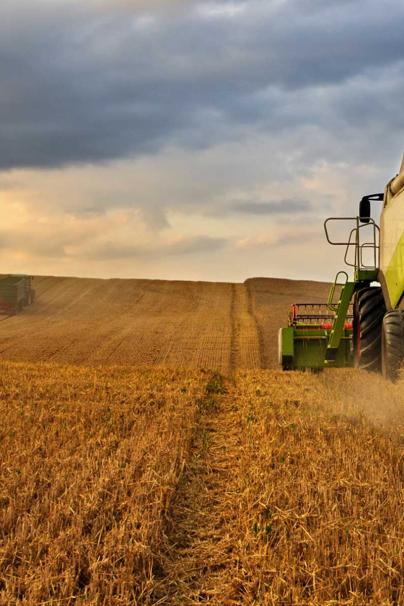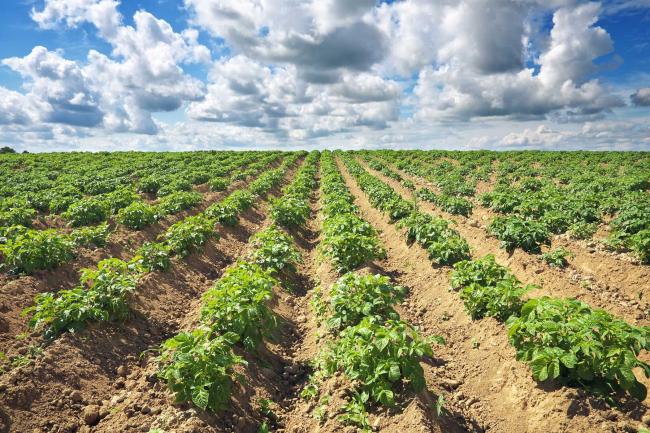Sustainable crop production is key to our livelihood in the UK. To make this happen, the agriculture industry needs to be on top of the latest technologies. Next-generation sequencing has made genome assembly in crops a reality - bringing together industry and science to help meet the challenges of food security, soil health, climate change and depleting natural resources.
Change needs innovation - this is where Agri-Tech East’s Young Innovators Forum comes in. A recurring event set-up to enable early career stage scientists and farmers to come together to drive forward innovation in the Agri-Tech industry.
The event at EI on 3 March, in partnership with Agri-Tech East and Norfolk Young Farmers Club, was an opportunity for scientists from the Norwich Research Park to meet with farmers, growers and processors, learning about and influencing the direction of agriculture.
Unconsidered questions.
Dr Daniel Swan, Dr Ji Zhou, Dr Walter Verweij and Ricardo Ramirez-Gonzalez enlightened the audience by speaking about our latest technology and agricultural advances at EI. Alongside lab tours of our genome sequencing processes and next-generation technologies by EI’s Harbans Marway and Ashleigh Binnie from the Platforms & Pipelines team.
The discussions focused on scientists and farmers debating the future challenges and exciting technologies of agriculture. Producing solutions from new perspectives, discovering unconsidered questions, and even some invites for our scientists to the farms!
Writing our DNA.
Dr Swan gave an introduction to EI’s scientific programmes and how the research is underpinned by DNA sequencing technologies. Dr Swan shared the concepts of synthetic biology and how genetic engineering will apply to future agriculture, “If genome sequencing is what allows us to read DNA - synthetic biology is the technology that allows scientists to write it.”
"The event was a really valuable experience and I'm sure this was felt from both sides of the conversation. A number of offers were made to get out, quite literally, in the fields and I would love to be able to continue the conversation in situ”, said Dr Dan Swan. “It was a great evening, and it was fantastic to meet a generation of farmers’ already embracing technology, and keen for more."
What's in the air?
Dr Verweij presented his work on the ‘Air-seq’ project to identify airborne pathogens. Initial experiments which he and his colleagues collected air from an outdoors picnic area and a glasshouse with potato plants, showed that their approach had the sensitivity to capture microbes that are uniquely present in either collection points; detecting DNA that derived from the fungi Alternaria, a pathogen that causes early blight in the potato. After further optimisation of the protocol, they have improved the detection of DNA molecules from the air samples that contain very small amounts of DNA.
A second more extensive experiment involved collecting air samples during last year’s wheat growing season. The group are currently analysing the data, but the preliminary results indicate that various pathogens detected are confirmed to be present in the designated plot.

Precision agriculture.
Dr Zhou introduced the group to ‘CropQuant’, a crop monitoring workstation for precision agriculture invented by EI and the John Innes Centre. Automated field-based phenotyping is essential for today’s crop science and breeding/farming business, where previous traditional methods are low-throughput, laborious, subjective, and limited by the environment.
This technology has the potential to be a much more cost-effective solution to farmers in comparison to existing market offerings. CropQuant can automate image acquisition and provide high-throughput analysis to quantify wheat crop growth, canopy compactness (drought adaptation) and colour changes during the growth season. Recently awarded a Norwich Research Park translational fund, Dr Zhou is further developing and looking to commercialise the in-field technology in the near future.
More food - less effort.
Dr Verweij said: “The great feedback and enthusiasm we received during the AgriTech-East Forum, made us committed to further develop this technology to revolutionise the way farmers grow their crops. It was an absolute pleasure to interact with all these bright and hardworking people and to inform them about what we as scientists are doing to support them in the big challenge of producing more food in the future.
"During the discussion, it was clear that the farmers, agronomists, tulip growers, or people who store the produce are desperate for new supporting technologies and EI clearly showed that we're working hard towards this.
"Now that we have shown them how we can help at EI, I feel there is a real urge for them to explain to us what they are doing and tell us about their challenges. I think with a mutual understanding we can help each other better to achieve what is needed - more efficient processes to produce more food with less effort."
Volatile market.
“The Agri industry faces many challenges, from unstable and ever changeable weather conditions, to volatile markets. The volatility of the global market affects grain and milk prices making investment and longer-term planning decisions much harder and has had the consequence of many of the farmers in the dairy industry losing their business,” said Rachel Cole from The Young Farmers Club.
“These factors are occurring against the backdrop of Government policy which requires greater food production with less environmental impact while the available active ingredients for crop protection are diminishing and competition for valuable water resource from environmental, urban and industry requirements increases.”
Young Farmers feedback
“I think the EI meeting was a positive step in bringing young researchers and industry representatives together. It's good to see EI are actively implementing 'knowledge transfer.” Tom Rouse
“The meeting in my view was brilliant, it was nice to get the chance to meet the people behind the science and find out what goes on behind the scenes. It was good to know what they are doing to try and help us with the future and the challenges we are facing and to be given the chance to say how we are being challenged.” Richard Harrold
“I really enjoyed the meeting at EI and particularly found building relationships with the scientists will really help us as farmers in industry, and learning about the scientists projects have really given an insight into how science can help the future of agriculture in the UK and further afield.” Tom Collison
“Great to see the work of the scientists and to bring the farmers and researchers together for a joint discussion.” Phil Debenham
Two worlds.
“It is always inspiring to see young farmers and researchers getting together - we are seeing they have lots in common and a real will and ambition to learn more about each other’s' worlds,” said Becky Dodd, Coordinator, Young Innovators' Forum, Agri-Tech. “This bodes well for future collaborations between scientists and producers to help tackle the big challenges facing agriculture."






